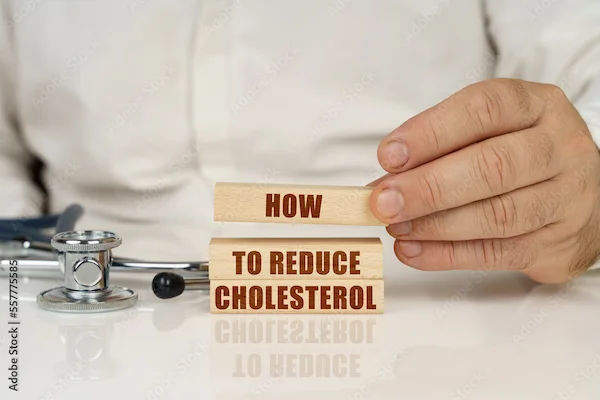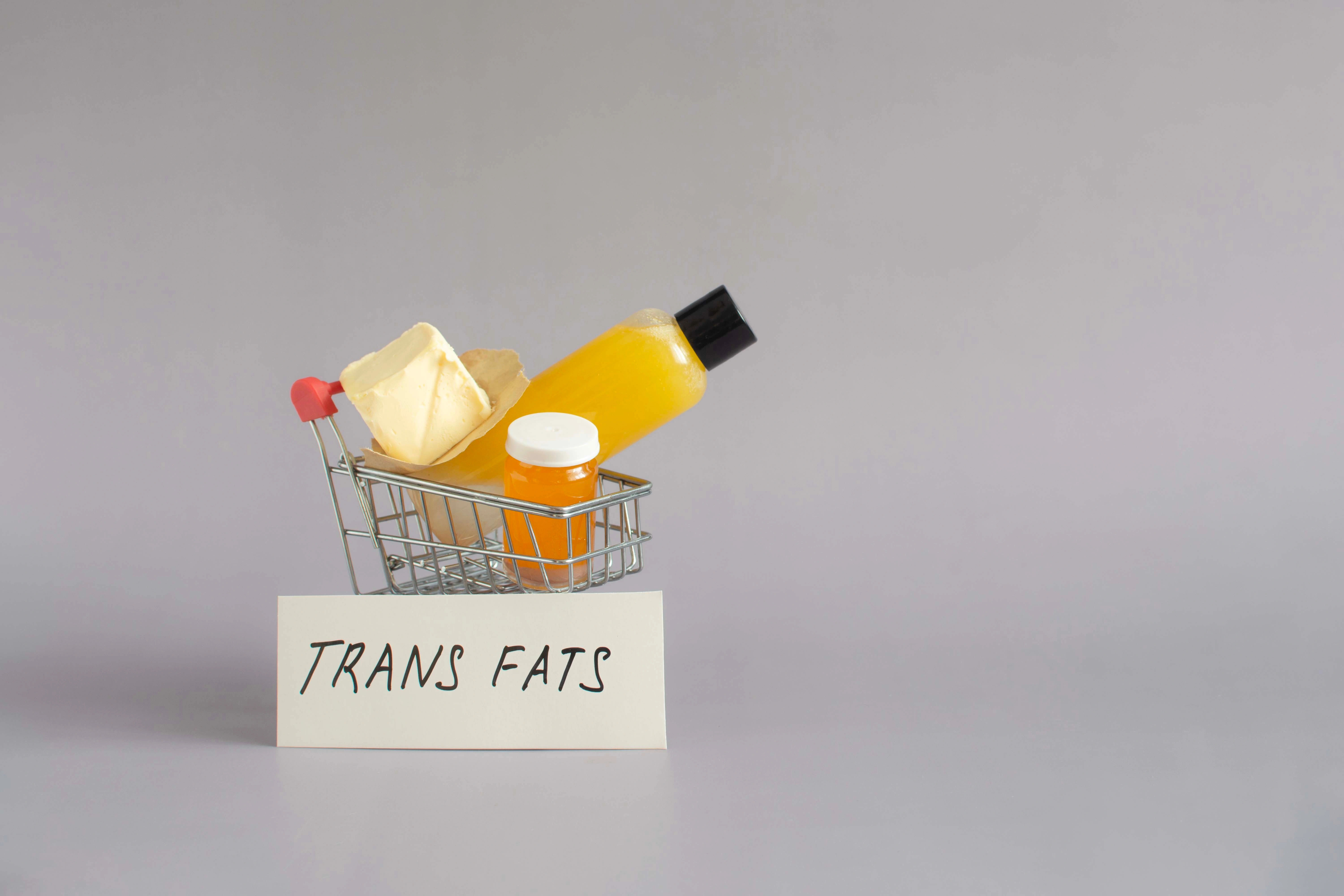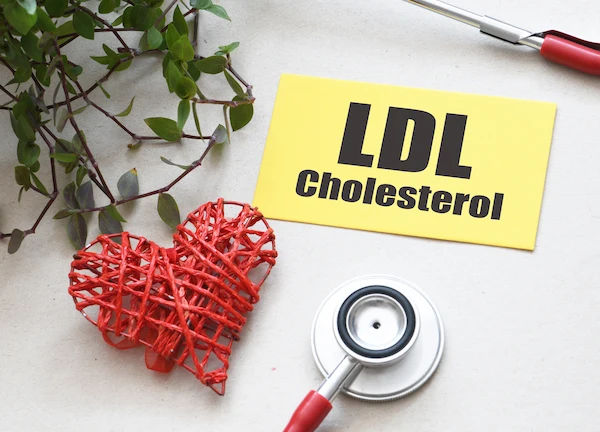HDL vs. LDL Cholesterol: What You Need To Know For Better Heart Health
Learn the key differences between HDL and LDL cholesterol and how they impact heart health. Understand how to manage these cholesterol levels for better cardiovascular health and reduce the risk of heart disease.

Written by
Last updated on 3rd Jul, 2025
Introduction
Cholesterol often gets a bad reputation, but it's essential for many bodily functions. However, not all cholesterol is the same. Understanding the differences between HDL (high-density lipoprotein) and LDL (low-density lipoprotein) cholesterol is crucial for safeguarding your heart and minimising the risk of cardiovascular disease.
This article will clarify the distinctions between HDL and LDL cholesterol, delve into their effects on your health, and provide practical, actionable tips for managing your cholesterol levels to enhance your heart health.
What is Cholesterol?
Cholesterol is a waxy substance found in every cell of your body. While your liver produces most of the cholesterol you need, you also get cholesterol from the food you eat, particularly foods high in saturated fats. Cholesterol is carried through your bloodstream by lipoproteins, which are molecules made up of fat (lipid) and protein. The two main types of cholesterol-carrying lipoproteins are HDL and LDL.
HDL Cholesterol: The "Good" Cholesterol
High-density lipoprotein (HDL) is often referred to as “good” cholesterol. Why? Because it helps remove excess cholesterol from your bloodstream and transports it to the liver, where it can be processed and eliminated from the body. Essentially, HDL acts as a cleanup crew, picking up cholesterol that could otherwise build up in your arteries.
Having high levels of HDL cholesterol is beneficial for heart health. It reduces the risk of atherosclerosis—a condition in which plaque builds up in the arteries, narrowing them and potentially leading to heart attacks, strokes, and other cardiovascular diseases.
1. How HDL helps your health:
Cleans up cholesterol: By removing excess cholesterol from your arteries, HDL helps prevent plaque buildup.
Reduces inflammation: HDL can reduce inflammation in blood vessels, further reducing the risk of heart disease.
Protects against heart disease: Higher HDL levels help protect your heart by improving blood flow and reducing the risk of blood clots.
2. Factors That Can Raise HDL Cholesterol
Raising your HDL cholesterol, often dubbed the "good" cholesterol, is crucial for heart health. Here are some key lifestyle changes and factors that can help boost your HDL levels:
Regular Exercise: Getting your body moving is one of the most effective ways to raise HDL cholesterol. Aerobic exercises like walking, jogging, cycling, and swimming are particularly beneficial. Aim for at least 150 minutes of moderate-intensity exercise each week.
Healthy Diet: Incorporating healthy fats into your diet can significantly impact your HDL levels. Foods like olive oil, avocados, nuts, and fatty fish are rich in monounsaturated and polyunsaturated fats that can help raise HDL cholesterol. Additionally, avoiding trans fats found in processed foods is crucial for maintaining healthy cholesterol levels.
Weight Management: Maintaining a healthy weight can positively influence your cholesterol levels. Losing excess weight can help increase HDL cholesterol while reducing LDL cholesterol and triglycerides. Focus on sustainable weight loss through a balanced diet and regular physical activity.
Smoking Cessation: If you smoke, quitting can improve your HDL cholesterol levels. Smoking lowers HDL cholesterol and increases the risk of heart disease. Quitting smoking can lead to a significant improvement in HDL levels and overall cardiovascular health.
Healthy Eating Patterns: Following a heart-healthy eating pattern, such as the Mediterranean diet, can help raise HDL cholesterol. This diet emphasises fruits, vegetables, whole grains, lean proteins, and healthy fats, which contribute to overall cardiovascular health.
LDL Cholesterol: The "Bad" Cholesterol
Conversely, low-density lipoprotein (LDL) is often called “bad” cholesterol. This is because when there is too much LDL cholesterol in your bloodstream, it can build up in the walls of your arteries, leading to plaque formation. This plaque narrows the arteries and makes it harder for blood to flow, which can lead to blockages, heart attacks, and strokes.
While your body needs a certain amount of LDL to function, having too much can be harmful. It’s important to keep your LDL cholesterol levels within a healthy range to prevent heart disease and other cardiovascular problems.
1. How LDL harms your health:
Builds up in arteries: Excess LDL cholesterol can form plaque, leading to the narrowing of the arteries.
Increases the risk of blood clots: Plaque can rupture, causing blood clots that block blood flow, leading to heart attacks and strokes.
Promotes atherosclerosis: High LDL levels are a major contributor to the development of atherosclerosis, a dangerous condition that restricts blood flow to vital organs.
2. Contributing Factors to High LDL Cholesterol
High levels of LDL cholesterol, commonly referred to as "bad" cholesterol, can pose significant health risks. Here are some key factors that contribute to elevated LDL cholesterol levels:
Diet: Consuming foods high in saturated fats and trans fats can raise LDL cholesterol levels. Common culprits include fatty cuts of meat, full-fat dairy products, processed foods, and fried foods.
Lack of Physical Activity: Leading a sedentary lifestyle can contribute to weight gain and higher LDL cholesterol levels. Regular physical activity helps to lower LDL cholesterol and raise HDL cholesterol.
Obesity: Being overweight or obese is linked to higher LDL cholesterol and lower HDL cholesterol. This imbalance increases the risk of cardiovascular diseases.
Smoking: Smoking damages the walls of the blood vessels, making them more susceptible to plaque buildup. It also lowers HDL cholesterol levels, compounding the risk.
Genetics: Familial hypercholesterolemia is a genetic condition that causes high cholesterol levels, even in individuals who lead a healthy lifestyle. Genetics play a significant role in determining cholesterol levels.
Age and Gender: Cholesterol levels naturally rise with age. Men generally have higher LDL levels than pre-menopausal women. However, post-menopausal women often experience an increase in LDL cholesterol levels.
Strategies for Balancing HDL and LDL Cholesterol
Achieving a healthy balance between HDL and LDL cholesterol is vital for cardiovascular health. Here are some strategies to help maintain this balance:
1. Eat a Heart-Healthy Diet:
Increase Fiber Intake: Foods high in soluble fibre, such as oats, beans, lentils, fruits, and vegetables, can help lower LDL cholesterol levels.
Choose Healthy Fats: Replace saturated and trans fats with monounsaturated and polyunsaturated fats. Good sources include olive oil, avocados, nuts, and fatty fish.
Limit Cholesterol Intake: Although dietary cholesterol has a smaller impact on blood cholesterol levels than previously thought, it’s still a good idea to consume it in moderation.
Consume Plant Sterols and Stanols: These naturally occurring compounds found in fruits, vegetables, nuts, and seeds can help reduce LDL cholesterol levels.
2. Stay Physically Active:
Exercise Regularly: Aim for at least 150 minutes of moderate aerobic activity or 75 minutes of vigorous aerobic activity each week, along with muscle-strengthening exercises on two or more days a week.
Include Aerobic Exercises: Activities like walking, running, cycling, and swimming can help raise HDL cholesterol and lower LDL cholesterol levels.
3. Maintain a Healthy Weight:
Achieve and Maintain a Healthy Weight: Losing excess weight can help lower LDL cholesterol and raise HDL cholesterol levels.
Avoid Crash Dieting: Focus on sustainable, long-term changes to your diet and exercise routine rather than quick-fix solutions.
4. Avoid Smoking and Limit Alcohol:
Quit Smoking: Smoking lowers HDL cholesterol and damages the arteries. Quitting smoking can improve HDL levels and reduce the risk of cardiovascular disease.
Limit Alcohol Consumption: While moderate alcohol consumption has been linked to higher HDL cholesterol levels, excessive drinking can lead to various health problems. If you choose to drink, do so in moderation.
5. Manage Stress:
Practice Stress-Reduction Techniques: Chronic stress can negatively impact cholesterol levels. Techniques such as mindfulness, meditation, yoga, and deep-breathing exercises can help manage stress.
6. Regular Health Check-Ups:
Monitor Your Cholesterol Levels: Regular check-ups with a healthcare provider can help you keep track of your cholesterol levels and make necessary adjustments to your lifestyle or medication.
Follow Medical Advice: If you have been prescribed medication to manage your cholesterol levels, take it as directed and discuss any concerns with your healthcare provider.
Conclusion
Understanding the difference between HDL vs. LDL cholesterol is an essential part of maintaining heart health. HDL, the “good” cholesterol, helps protect your arteries, while LDL, the “bad” cholesterol, contributes to plaque buildup and increases the risk of heart disease. By adopting a healthy diet, staying active, managing your weight, and avoiding smoking and excessive alcohol, you can optimise your cholesterol levels and improve your overall heart health.
Don’t forget to consult with your healthcare provider to monitor your cholesterol regularly and get personalised advice on how to manage your levels effectively.
Consult Top Cardiologist
Consult Top Cardiologist

Dr. Anand Ravi
General Physician
2 Years • MBBS
Bengaluru
PRESTIGE SHANTHINIKETAN - SOCIETY CLINIC, Bengaluru

Dr. Tripti Deb
Cardiologist
40 Years • MBBS, MD, DM, FACC, FESC
Hyderabad
Apollo Hospitals Jubilee Hills, Hyderabad
Dr Moytree Baruah
Cardiologist
10 Years • MBBS, PGDCC
Guwahati
Apollo Clinic Guwahati, Assam, Guwahati

Dr. Zulkarnain
General Physician
2 Years • MBBS, PGDM, FFM
Bengaluru
PRESTIGE SHANTHINIKETAN - SOCIETY CLINIC, Bengaluru

Dr Nazneen Khan
Cardiologist
7 Years • M.B.B.S, M.D (MEDICINE), DrNB CARDIOLOGY
Pune
Apollo Clinic, Viman Nagar, Pune



